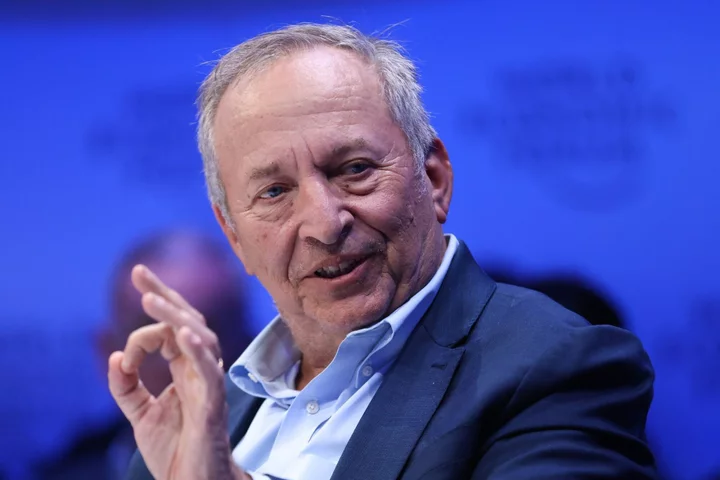Former US Treasury Secretary Lawrence Summers cautioned that the recent run-up in 10-year yields may have further to go, and that pressures are building to keep those benchmark rates much higher than experienced over the past two decades.
“I don’t particularly see the current level of longer-term rates as any kind of peak,” Summers said on Bloomberg Television’s Wall Street Week with David Westin. Summers said that conclusion is based in part on expectations for bigger government budget deficits “to come into focus” for investors over time.
Ten-year US Treasury yields this week approached the levels reached in October, when they hit the highest since 2007, and were at 4.19% as of 10:34 a.m. in New York. Over the past two decades, they’ve averaged about 2.90%, according to data compiled by Bloomberg.
Summers, a Harvard University professor and paid contributor to Bloomberg TV, said he thinks of 10-year yields as offering compensation for three distinct factors:
- Inflation, which he said is likely to trend at a faster pace than in the past, perhaps 2.5%.
- A real return, which could be 1.5% to 2% over time when thinking of the government’s increasing borrowing needs — driven by the need for more defense spending, likelihood of some Trump administration tax cuts getting extended and higher average interest costs on outstanding debt.
- A term premium, which is the compensation investors get for buying a longer-term security rather than rolling over investments in short-term ones. Typically this has averaged about 0.75 to 1 percentage point, Summers said.
Adding up the three components, then it’s likely investors over the next decade will be “looking at 4.75 on the 10-year — and it obviously could end up being higher than that,” Summers said. While “nobody knows” how things will turn out, the former Treasury chief highlighted that many elements apparent today suggest that the economy is in a different era.
Employers have relatively high demand for workers, and workers appear to be increasingly empowered in their talks with companies, he said. There has also been a change in the previous trend of “growing competitive pressure from globalization” that helped to hold costs down, he said.
Summers said “I would guess that these higher long-term rates are with us to stay — and if I had to bet, I think I bet that they’re more likely to go higher, than to go lower.”









